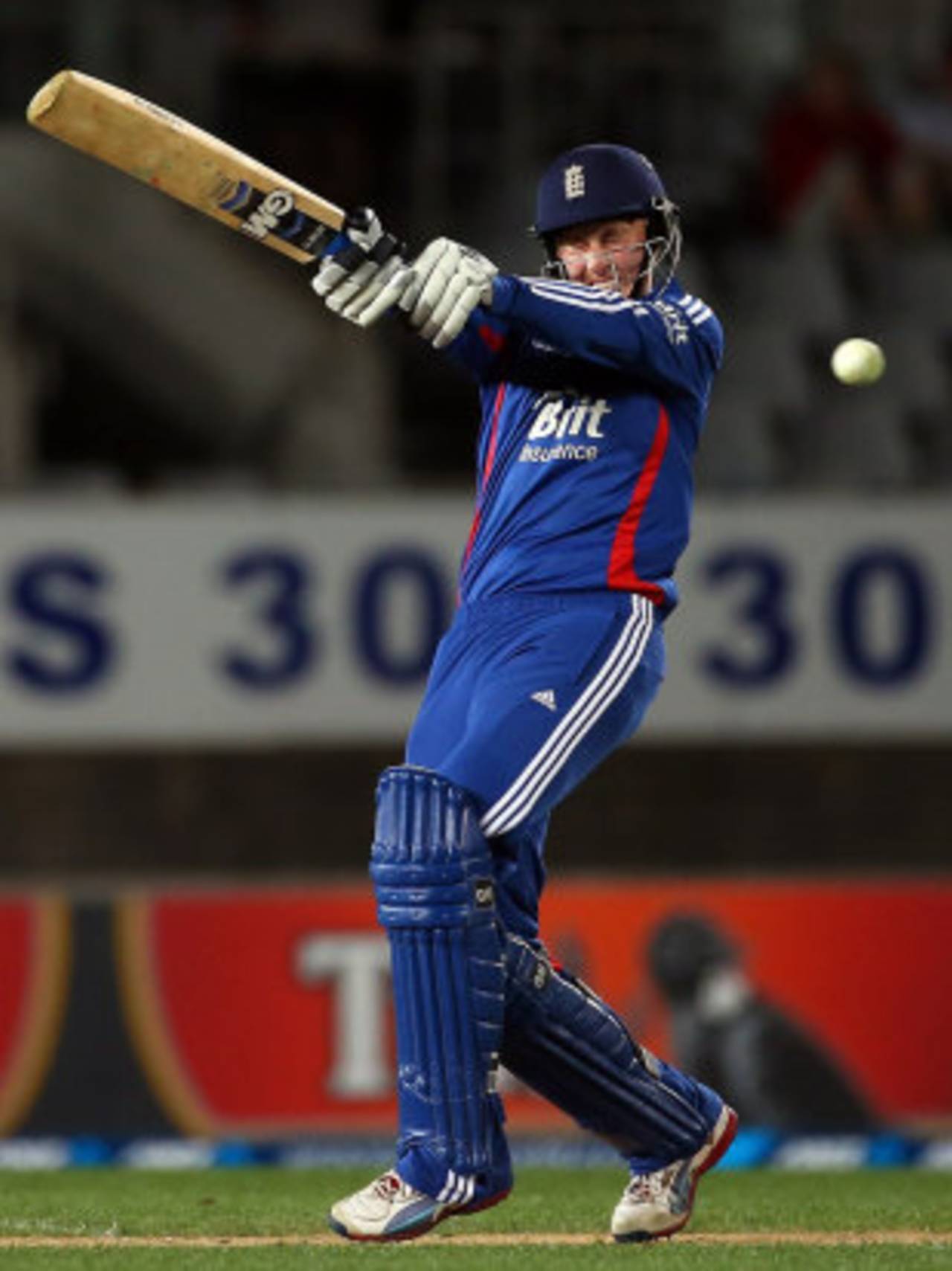'Rooted', a word in New Zealand parlance that has several meanings. The more savoury one is "something broken, or has been broken". New Zealand have been rooted among other things; in this instance by a baby faced 22-year-old.
With scores of 56 and 79 not out in the first two ODI's and being the first player to have six consecutive scores of 30-plus starting with his debut, Joe Root stood out, and rightly so, to the New Zealand crowd who hadn't seen him bat and dash about the field. He was denied a seventh 30-plus score on the trot (28 not out) only because New Zealand didn't score enough in the second innings to leave him the runs to do so. Although, had he waited for the ball to roll over the boundary and not touched down for the completed final single, it would have been scored as a four and he would have kept his 30-plus run alive. The quirks of the game.
Root has time, he has a plan and, most importantly, he has a level head that belies his age. He rotates the strike, he can hit a boundary, when needed, and can happily switch back and forth between the aggressor and the nudger.
In the same way a young Root has had success with the bat in this series, the slightly older Steven Finn has been fiery and controlled and been a star at the top of the innings with the ball. Together with James Anderson, haven't let New Zealand take advantage of the Powerplay - 18 for 1, 21 for 2, and 32-1 in three games - and have taken wickets to compound the run-rate issues New Zealand have had. Finn has shortened his run-up and looks a little more in control of his limbs at jump and delivery. Pace and bounce have been his most important allies and the pitches have suited him throughout.
New Zealand played the latest ODI, perceivably, with a lack of real commitment; it was as if they were resigned to being on the wrong side of the ledger after losing the toss and being inserted. Weak dismissals punctuated the batting innings, and maybe New Zealand were lucky to catch the England team's ODI replacements on the hope in the first ODI in Hamilton.
The replacements from the Twenty20 series were based in Hamilton before start of the series, but had no opportunity for a warm-up hit-out, only use of the practice facilities at Seddon Park. Coming in cold to any series has been the burden of the New Zealand team; it has also been the case on recent overseas tours and they have equally not performed in the early international matches.
Brendon McCullum seems to have found his rhythm with the bat. The two new balls that are used in each innings means he is more valuable down the order when the ball is older, still hard, but not swinging or seaming as much as they tend to at the top of the innings. The captain has been allowed to "get in" and then get destructive. His best was in Napier during a partnership with the ex-captain Ross Taylor. McCullum pasted the England bowlers for 74 from 36 balls in an innings that New Zealand fans will feel typifies the belligerent batsman; as a finisher.
Taylor, after a tough start back into international cricket in the T20 series, found his feet in the first ODI and took that form into the second. A revitalising hundred in front of his home crowd took New Zealand to a score (269) that was never going to be totally secure, but would give them a chance if they took a wickets early. They didn't. On a side note the perceived awkwardness of the McCullum - Taylor relationship looked a thing of the past. They enjoyed a rollicking partnership in Napier and seeing Taylor chasing a dismissed McCullum to congratulate him on his innings was pleasing to see.
Tim Southee's comeback, two games earlier than expected, having replaced the injured Mitchell McClenaghan (side strain), showed positive signs after an eight week lay-off during which he needed surgery on his left thumb from a fielding incident in a domestic match. Southee was lined up for a Test return and has impressed to the point where it's hard to tell if he has had a break at all; straight back in and having success. Good sign for him ahead of the three Test series.
New Zealand have been outplayed, and outgunned, in the last two ODIs and it's hard to see the Test series being much different.
Fast bowler Iain O'Brien played 22 Tests for New Zealand in the second half of the 2000s
